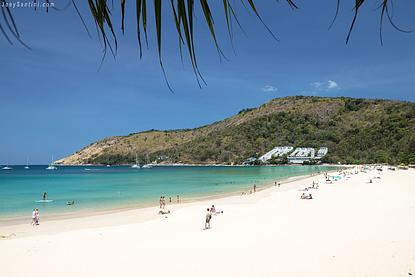Thai Law that you have to know!

Land leasehold rights for 90 years. Key aspects of land zoning. Which visa is best to apply for?
Laws regarding land ownership for foreign citizens in Thailand entail limited rights and require compliance with specific conditions. Here is the key information about the laws governing this in Thailand:
1. Land Ownership Restrictions: In general, foreign citizens and foreign companies are not allowed to own land in Thailand (Section 86 of the Land Code). The term "foreigner" in the law also includes Thai companies with foreign ownership exceeding 49% of the registered capital (Section 97(1) of the Land Code).
2. Leasing Rights: Foreign citizens have the right to enter into long-term lease agreements for land (leasehold) instead of owning land. Lease agreements are typically for 30 years with the option to renew for an additional 30 years.
3. Setting Up a Thai Company: Some foreign investors consider establishing a Thai company to acquire land ownership rights. However, it's essential to understand that such a company must comply with Thai legal requirements and have a Thai partner holding the majority of the company's shares. This method can be complex and requires legal consultation.
4. Inheritance Laws: Inheritance laws related to real estate and land can be complex and are governed by Thai legislation. Inheriting such property involves specific procedures and may depend on the status of the heirs.
5. Land Zoning Laws: Coastal zoning laws regulate construction and property ownership near Thailand's coastline. In some areas, construction may be restricted or prohibited.
The main aspects of land zoning law in Thailand may include the following:
a.) Categories of Land Plots: The law defines various categories of land, such as agricultural, residential, commercial, industrial, coastal areas, and others. Each category has its own rules and usage restrictions.
b.) Conditions and Permits: Landowners may require permits or licenses to change the designated use of a land plot or for construction on it. The law regulates the process of issuing these permits and establishes safety and environmental sustainability standards.
c.) Restrictions and Environmental Protection: Land zoning laws also include provisions aimed at protecting the natural environment and ecological sustainability. This may involve restrictions on construction in coastal areas or near natural reserves.
d.) City and Regional Planning: Land zoning law plays a crucial role in the development and planning of cities and regions in Thailand. It helps ensure balanced growth and sustainable land use.
Compliance with the law: Property owners and developers must strictly adhere to land zoning laws to avoid legal consequences and penalties.
Foreign citizens interested in purchasing real estate or land in Thailand should carefully study local laws and seek advice from our legal experts and real estate agents.
Visa regulations govern the entry and stay of foreign citizens in Thailand. Various types of visas are available for different purposes and durations. Here is some key information about Thai visas:
1. Tourist Visa (Tourist Visas "O" and "B"): These visa types are intended for short-term stays in Thailand for tourism purposes. Visa "O" allows a stay of up to 60 days, with an option for a 30-day extension, while visa "B" allows a stay of up to 90 days with the possibility of an extension.
2. Work Visa (Non-Resident Visa "B"): A work visa grants the right to work and reside in Thailand. It is issued to foreign citizens who have signed a contract with a Thai company or are employed in Thailand.
3. Student Visa (Non-Resident Visa "ED"): This visa is designed for students coming to Thailand for educational purposes. The visa is valid for the duration of the study program.
4. Pension Visa (Non-Resident Visa "O-A"): The pension visa is for foreign citizens planning to retire in Thailand. Specific age and financial requirements apply to obtain this visa.
5. Business Visa (Non-Resident Visa "B"): This visa is for foreign investors and businesspeople with business projects in Thailand. The visa may also grant multiple entries into the country.
6. Marriage-Based Visa (Non-Resident Visa "O"): This visa is available to foreign citizens legally married to a Thai national and provides the right to live and work in Thailand.


